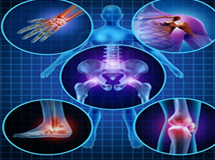ALTERNATIVE MEDICINE AND SPORT SCIENCE COURSES
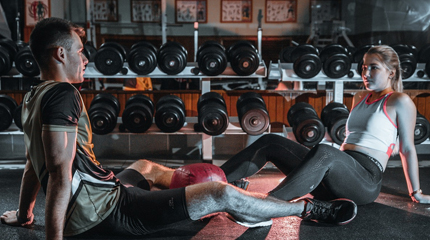
Exploring the Synergy between Alternative Medicine and Sport Science
In the dynamic world of sports, athletes are constantly seeking ways to optimize their performance and recovery. Alternative medicine, often rooted in ancient practices, has emerged as a complementary approach to conventional sports science.
Alternative Medicine in Sports:
Mind-Body Connection: Practices like yoga and meditation emphasize the crucial mind-body connection. Athletes are adopting mindfulness techniques to enhance focus, reduce stress, and improve mental resilience, contributing to better overall performance.
Acupuncture, a staple in traditional Chinese medicine, has gained popularity for its potential to alleviate pain and enhance recovery. Athletes are incorporating acupuncture into their regimens to address musculoskeletal issues and promote holistic healing.
Herbal remedies, such as adaptogens and traditional Chinese herbs, are gaining recognition for their potential to support athletic performance. These supplements are believed to aid in stress management, energy regulation, and immune system enhancement.
Sport Science Advancements:
Biomechanics: Cutting-edge technology allows us to analyze the biomechanics of athletes, providing insights into movement patterns, injury prevention, and performance optimization. Wearable devices and motion capture systems offer real-time data to enhance training strategies
Nutritional Science: Sport nutrition has evolved with precision, tailoring dietary plans to individual athletes. From personalized meal plans to optimized nutrient timing, sports nutrition science plays a vital role in achieving peak performance and rapid recovery.
Performance Analytics: Advanced analytics and data science have revolutionized sports training. Athletes and coaches now have access to detailed performance metrics, enabling evidence-based decision-making for training programs, injury prevention, and strategic game plans.
The convergence of alternative medicine and sport science is evident in holistic training approaches adopted by many athletes and sports professionals. Integrating practices like mindfulness, acupuncture, and herbal supplements with evidence-based sport science strategies creates a comprehensive framework for optimizing athletic potential.
As we navigate the exciting realms of alternative medicine and sport science, it's clear that a holistic approach to athlete well-being is on the rise. By combining the wisdom of traditional practices with the latest scientific advancements, we pave the way for a new era in sports performance—one that prioritizes the health and longevity of athletes.

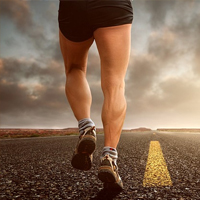
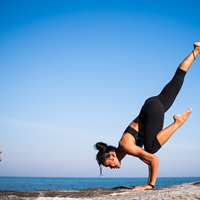
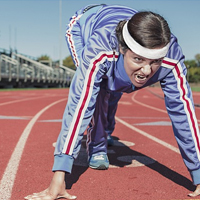
SPORTS TRAINER COURSES
Sports trainer courses are designed to equip enthusiasts with the knowledge and skills needed to excel in the field of sports coaching.
Whether you're a seasoned athlete looking to transition into coaching or a sports enthusiast eager to make a difference, these courses provide a comprehensive foundation.
These courses cover a broad spectrum, encompassing sports science, coaching techniques, injury prevention, and sports psychology. Participants delve into the intricacies of planning effective training sessions, understanding the physiology of athletes, and developing strategies for optimal performance.
Learn from seasoned professionals and industry experts who bring real-world experiences to the classroom. Their insights not only enrich the theoretical aspects but also provide invaluable practical knowledge, giving you a holistic understanding of sports training.
The best way to learn is by doing. Sports trainer courses emphasize practical applications. From creating personalized training programs to conducting live coaching sessions, participants actively engage in the learning process, ensuring they're well-prepared for the challenges of the sports coaching landscape.
Tailor your learning journey by choosing specializations that align with your interests or career goals. Whether it's strength and conditioning, nutrition, or sports-specific coaching, these courses offer a diverse range of options to cater to individual preferences.
Upon completion, participants often receive a recognized certification. This not only adds credibility to your profile but also opens doors to various opportunities within the sports industry.
In conclusion, sports trainer courses are a gateway to a fulfilling and impactful career in sports coaching. They offer a blend of theory and practicality, preparing individuals to lead, inspire, and contribute to the success of athletes. Whether your passion lies in soccer, basketball, or any other sport, these courses pave the way for a rewarding journey in the world of sports training.
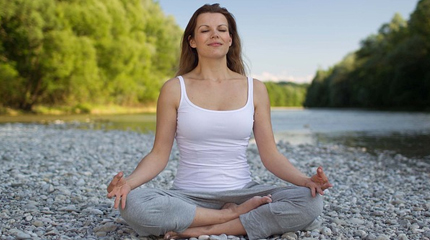
Sports Science Courses
Sport Science is a multi-disciplinary field concerned with the understanding and enhancement of human performance. It includes the knowledge, methods, and applications of sub-disciplines of human movement studies (i.e., exercise physiology, biomechanics, motor control and motor development, exercise, and sport psychology), as well as how they interact.
Sports scientists are trained experts who assist sports people to achieve the best possible sporting performance. They evaluate, research, assess and advise on coaching, training, competition and recovery practices in all areas and levels of sport.
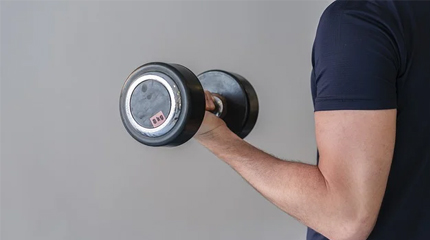
A sports scientist will work with teams and individual athletes to provide scientific support in preparation for competition. This can involve information, technical and practical support on training, injury prevention, technique analysis, nutrition and optimization of performance, and assistance with psychological issues (such as motivation, stress and arousal, and coping strategies). For example, a sport scientist might design a training program to increase a cyclist’s speed or improve a swimmer’s power off the swimming blocks.
Most Popular Sports Science Jobs
Sports science covers four main key sciences. Knowing how the human body acts and performs allows training programs to be designed for our clients to reach their maximum potential.
Sports science is used is school districts, athletic associations, and recreational departments. This technology is playing a role in training up and coming athletes to everyday individuals.
Sports science has changed the way people workout. Individuals are now able to get data on endurance, performance, technique and more.
This data can be compared with previous data and help improve performance.
NCOU's mission is to represent, engage and foster the continued growth and development of the athletic training profession and athletic trainers as health care providers.
Find the best ways to connect with your fellow athletic training educators, including online and in-person opportunities.
If you’re a member of the general public who is looking for more information about athletic training, youth sports safety or specific health issues, we encourage you to visit our external website.


